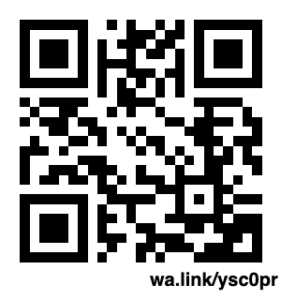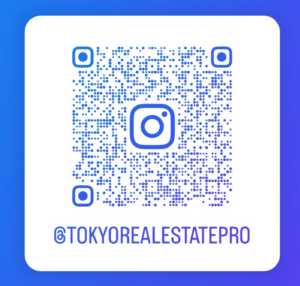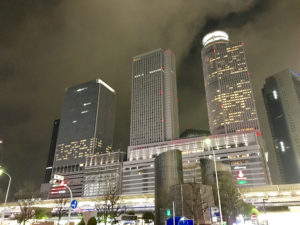Introduction
The Japanese real estate market offers unique opportunities and challenges for investors and homebuyers alike.
This article delves into the myriad costs associated with property transactions beyond the listing price,
helping you to budget effectively and navigate the market with confidence.
Understanding Purchase Costs
When buying property in Japan, costs extend far beyond the advertised price.
These vary based on the property’s location, type, and the transaction’s specifics.
Brokerage Commission (仲介手数料):
In Japan, brokerage fees for real estate transactions typically consist of 3% of the property’s sale price, an additional fixed fee of 60,000 yen,
and a consumption tax, which is currently at 10%.
These fees(commission) are payable to real estate agents (buying agents or listing agents).
Similarly, when you decide to sell your property through agents, the same fee structure applies.
You will need to pay 3% of the property’s sale price, plus a fixed fee of 60,000 yen,
along with the 10% consumption tax currently applicable.
These fees are payable to your selling agents.
Direct sales by owners can eliminate these fees, offering significant savings.
Direct sales by owners can eliminate brokerage fees, offering significant savings.
However, given the complexities of legal systems, potential language barriers, and varying business customs/rules in Japan,
I strongly recommend using a licensed real estate agent when buying or selling your property.
Their expertise ensures a smoother transaction and helps navigate the intricacies of the real estate market effectively.
(I know this sounds like a position talk)

Loan-Related Costs:
Financing typically involves a loan processing fee, which can range from 1% to 3% of the loan amount,
and variable interest rates, significantly affecting long-term costs.
For example, on a loan of 64 million yen, the processing fee would be 640,000 yen at 1% and 1,920,000 yen at 3%.
This clearly explains the impact of processing fees on the overall costs of financing.
Detailed Look at Major Costs
Key Costs include:
One-Time Costs:
Stamp Duty (印紙税)
Stamp Duty (印紙税) is another tax you should be aware of. This tax is applied when preparing real estate purchase contracts, mortgage agreements,
or construction contracts.
The amount of stamp duty depends on the value stated in the contract. For example, the stamp duty can range from ¥10,000 to ¥60,000 or more, depending on the contract amount.
Registration and License Taxes(Tourokumenkyo-zei, 登録免許税):
Uniform across Japan, these include 2% for land transfers and 0.4% for new buildings.
Judicial Scrivener Fees:(Shiho-shoshi, 司法書士)
The legal fees for registering your property typically range from 100,000 to 300,000 yen, depending on the complexity of the transaction.
Additionally, if the bank requires a separate judicial scrivener to be present at the time of the final payment,
the buyer is responsible for covering the costs of both the seller’s nominated scrivener and the bank’s nominated scrivener.
Real Estate Acquisition Tax(Fudousan-shutoku-zei 不動産取得税): A Case Study
For a better understanding, let’s consider a detailed simulation based on an 80 million yen property,
split into 30 million yen for land and 50 million yen for the building:
Example: Land Valuation and Tax:
With the land valued at 30 million yen, and assuming a fixed asset tax valuation at 70% (21 million yen),
the acquisition tax at a reduced rate of 3% would be 630,000 yen.
Example : Building Valuation and Tax:
For the building valued at 50 million yen, with a typical fixed asset tax valuation at 60% (30 million yen)
and considering the taxable standard amount is half of the assessed value for residential buildings (15 million yen), the acquisition tax would be 450,000 yen.
This results in a total acquisition tax of 1,080,000 yen for an 80 million yen property, illustrating the additional costs buyers can expect to pay.
Annual Recurring Costs:
Fixed Asset Tax (固定資産税)& Urban Planning Tax (都市計画税) (Pro-rata Settlement)
These taxes are levied on the property owner as of January 1st of each year. Since the seller typically pays the full year’s taxes in advance,
it is customary for the buyer to reimburse the seller for a portion of these taxes based on the date of property transfer.
The calculation can use January 1st or April 1st as the starting date, depending on the local practice.
Payment Timing:
The pro-rata settlement is usually paid at the time of property settlement (the day of closing and transfer).
Calculation Method:
- Fixed Asset Tax = Assessed value of the property (課税標準) × 1.4% (standard rate)
- Urban Planning Tax = Assessed value of the property (課税標準) × 0.3% (the rate may be lower depending on the municipality)
Example Calculation:
If the property’s assessed value is 14 million yen and the sale price is 20 million yen, the combined annual taxes would be:
- 14,000,000 yen × 1.7% (combined rate) = 238,000 yen per year
- For six months: 238,000 yen × 0.5 = 119,000 yen
(Note: If there was a house on the land as of January 1st, there might be a significant tax reduction due to exemptions.)
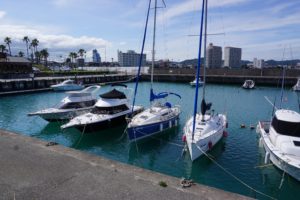
Insurance Needs for Property Owners
Essential for protecting your investment and fulfilling mortgage requirements:
Fire Insurance:
Covers damages from various disasters, with premiums for a property valued at 80 million yen typically ranging
from 360,000 to 440,000 yen annually with earthquake coverage.
Earthquake Insurance:
Highly recommended in Japan, with additional costs based on the fire insurance policy.
Variable Costs That Can Affect Your Budget
These include moving costs, which can vary widely depending on distance and belongings, and optional upgrades
like high-quality kitchens or smart home technology that enhances the property’s value and living experience.
Strategies to Minimize Costs
Effective strategies such as comparison shopping and negotiation can significantly reduce costs.
It’s crucial not just to find the right property but to manage the purchase smartly to ensure value for money.

Conclusion
Buying property in Japan involves understanding a complex array of costs.
With detailed planning and strategic purchasing, you can navigate these challenges effectively.
This guide aims to provide the knowledge needed to tackle these issues confidently.
For more insights and assistance with your real estate transactions in Japan, consult with a professional.
Subscribe to our YouTube channel for more updates and expert advice,
ensuring you navigate the Japanese real estate market with ease and confidence.
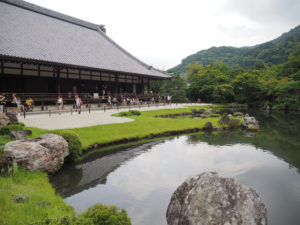
Toshihiko Yamamoto – Founder and Lead Broker, Yamamoto Property Advisory
Toshihiko Yamamoto is the founder and principal broker of Yamamoto Property Advisory,
a distinguished real estate brokerage in Tokyo that specializes in luxury residential and investment properties for an international clientele.
His firm caters to discerning investors seeking premier properties for personal use and income-generating whole buildings for investment purposes.
A licensed real estate broker in Japan, Mr. Yamamoto holds an MBA from Bond University in Australia
and a Certified Commercial Investment Member (CCIM) designation from the CCIM Institute in the United States.
His extensive international experience, having lived abroad in Australia and the United Kingdom, equips him
with a nuanced understanding of global real estate trends and the unique needs of foreign investors.
With over two decades of experience in international business, Mr. Yamamoto has successfully conducted business with clients from more than 20 countries.
As a seasoned property investor himself, he provides informed guidance to his clients as they navigate the intricacies
of the Japanese real estate market to secure optimal investments.
Discover more in his book, “The Savvy Foreign Investor’s Guide to Japanese Properties: How to Expertly Buy, Manage,
and Sell Real Estate in Japan,” available on Amazon, iBooks, and Google Play.
Connect with us through social media on Instagram, WhatsApp, and LINE for further information and expert assistance.
